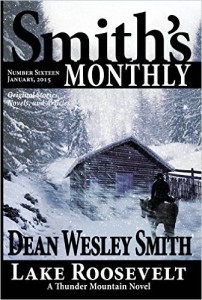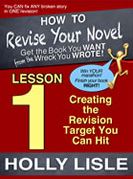The title pretty much sums it up when it came to writing this week. And blogging today–that’s why this is coming so late. But I decided not to break my streak of blogging every Sunday this year, so here I am.
I did have somewhat of an excuse: I went for a motorcycle ride with my husband this afternoon. We’ve had some great weather for Ohio in February, so we had to take advantage. It was windy, but otherwise wonderful, a fitting end to a fine week. And yesterday, I went out looking at new kitchen cabinets, and met with a designer at Lowe’s. We’re not actually going to start on the kitchen until late July, but we learned at our meeting that now is the time to start planning. When I got home from our motorcycle ride today, I wasted all kinds of time looking at kitchen stuff and pinning on Pinterest. Yes, I’m there, I’ve just never used it until now. My page is here if anyone’s dying of curiosity. 😀
My cooking day last Sunday went well, too, and there are now 25 meals in my freezer. 25 instead of 30, because we already ate a few. Some were fantastic “make-this-again-every-week” good, and some were… not so much. Not because of my cooking, but the recipe just wasn’t that great. But that’s one cool thing about once a month cooking, is that it keeps us out of a rut and trying new things.
 What I’ve been reading: for reading this week: I stuck with the tried-and-true: Smith’s Monthly #16, by Dean Wesley Smith. I read all of it this week, both the short stories, and the novel, Lake Roosevelt, another of his Thunder Mountain time travel series. The last two were much better, but this one was still enjoyable.
What I’ve been reading: for reading this week: I stuck with the tried-and-true: Smith’s Monthly #16, by Dean Wesley Smith. I read all of it this week, both the short stories, and the novel, Lake Roosevelt, another of his Thunder Mountain time travel series. The last two were much better, but this one was still enjoyable.
 ROW80 Update: I’ve got nothing. This is the I Don’t Wanna part–revisions. Every time I sat down to work on them, I found myself doing anything else I could. After several days of this, I tried to figure out why, and realized it was because the two new scenes I’d planned were not the right way to go. For one thing, both were mostly just characters talking, which = boring! But I didn’t want to add more complexity to them by making more going on in them. So I’m going to just plow ahead with the revision , and try to work in the information and thematic stuff my reader and I talked about into the existing material. I suspect it’s still going to be slow going, so I’m going to shoot for getting through two chapters this week.
ROW80 Update: I’ve got nothing. This is the I Don’t Wanna part–revisions. Every time I sat down to work on them, I found myself doing anything else I could. After several days of this, I tried to figure out why, and realized it was because the two new scenes I’d planned were not the right way to go. For one thing, both were mostly just characters talking, which = boring! But I didn’t want to add more complexity to them by making more going on in them. So I’m going to just plow ahead with the revision , and try to work in the information and thematic stuff my reader and I talked about into the existing material. I suspect it’s still going to be slow going, so I’m going to shoot for getting through two chapters this week.
What about you–ever have one of those times when you just don’t wanna? What did you do to get through it? How are you doing on whatever goals you may have, whether writing or not? Please share in the comments–I’d love to hear from you!
 Jennette Marie Powell writes stories about ordinary people in ordinary places, who do extraordinary things and learn that those ordinary places are anything but. In her Saturn Society novels, unwilling time travelers do what they must to make things right... and change more than they expect. You can find her books at Amazon, Barnes & Noble, Smashwords, Kobo, iTunes, and more.
Jennette Marie Powell writes stories about ordinary people in ordinary places, who do extraordinary things and learn that those ordinary places are anything but. In her Saturn Society novels, unwilling time travelers do what they must to make things right... and change more than they expect. You can find her books at Amazon, Barnes & Noble, Smashwords, Kobo, iTunes, and more.



 Holly also had a long-term, online workshop that sounded cool, but her second one of these – How to Revise Your Novel – that caught my eye. It’s subtitled “How to Get the Book You Want from the Book You Have.” I signed up as a charter member.
Holly also had a long-term, online workshop that sounded cool, but her second one of these – How to Revise Your Novel – that caught my eye. It’s subtitled “How to Get the Book You Want from the Book You Have.” I signed up as a charter member.
